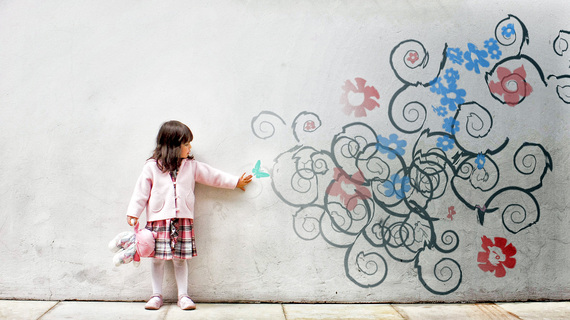The school of hard knocks can make us tough on the outside but more fragile on the inside. We convince ourselves that a tough exterior will protect us and keep us safe from further injury. While an initial reaction of self-protection is normal and adaptive, if it becomes our reflexive way of relating, over time it will be isolating. As defensiveness increases, the internal list of what we perceive as threatening expands. We risk becoming increasingly aloof, suspicious, irritable, and even combative. When this happens, we risk pushing important relationships away, feeling lonely, and eventually hardening our hearts.
Under the flimsy façade of toughness, the heart will always speak the truth in spite of our efforts to silence it. It has the strength of humility and the compassion for suffering. It is the self-preserving, life-enriching instinct within us that can be trusted. It relentlessly insists on guiding us toward rebuilding our capacity for social and emotional intimacy.
There are many ways to get past our emotional facades and re-connect our internal life with our external life. We speak and connect through words when we share our stories and our feelings with one another. We also speak silently while connecting through healing touch. Touch has the ability to connect us both physically and emotionally. After childbirth, moms who nurse their babies release a flood of oxytocin, known as the bonding or cuddle hormone. The Association for Psychological Science reports on a study led by psychologist Ruth Feldman of Bar-Ilan University in Israel that demonstrate the powerful link between oxytocin and bonding in human mothers. In an interview in LiveScience, Dr. Feldman says, "When mothers touch or hold their infants frequently, oxytocin is increased, and when mothers are prevented from touching, it decreases."
Simply holding the hand of a loved one increases the production of this hormone, which science tells us is critically important in the "neuro-anatomy of intimacy." When we receive a hug or a pat on the back, prefrontal areas of the brain, which help to regulate emotion, can relax, allowing them to do what they do best: problem solve. In effect, the body interprets a supportive touch, as "I'll share the load."
In a study in the journal Integrative Cancer Therapies, researchers from the University of Minnesota tested the effects of therapeutic massage and healing touch on 230 subjects undergoing cancer treatment. They found that therapeutic massage and healing touch lowered blood pressure, respiratory rate and heart rate, "reducing pain, mood disturbance and fatigue in patients receiving cancer chemotherapy."
Dr. Abraham Verghese expounds upon the critical importance of touch in his TED talk titled, "Is the Human Hand Our Best Technology?" He speaks frankly about the austerity of most medical examining rooms these days, joking that if you come with a missing limb, they will insist on an MRI and an orthopedic consult before diagnosing. He contends that patients are seldom touched or looked at directly. Dr. Verghese speaks of the power and intimacy of the physician's touch, naming it a "ritual of transformation" -- not just for the patient, but for the doctor as well.
This was poignantly demonstrated by one of his patients with AIDS, who in his final hours, signaled to him, tapping on his "wicker basket chest," that he wanted one last examination from his doctor. He needed to feel his touch, and through it, his care, his presence. Dr. Verghese described the power of transformation that they both experienced in that critical moment. The singular message, as physician and as fellow human being, that he could convey through touch was, "I am here, I will see you through this. I will not abandon you. I will be there, with you, through the end."
Touch brings us together, intimately. Without words it says, "I am with you. You matter to me." This is illustrated in a story that a friend shared with me about a 5-year-old boy whose mom spotted him sitting quietly next door with his elderly neighbor who was recently widowed. When he returned home, his mom asked the little boy what they had talked about. Her son replied, "Oh, we didn't talk. I just sat by him, hugged him, and helped him cry."
Healing touch can initiate the power of sacred connection. It creates a restorative bridge of comfort and trust. It banishes loneliness, linking our physical and emotional well being. It's the secret sauce of communication, without which we cannot live and grow and thrive.
How has being touched or touching someone made you feel healthier and happier?
This article originally appeared on Ornish Living.
